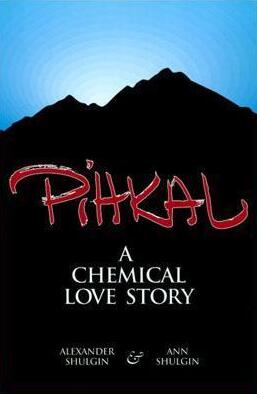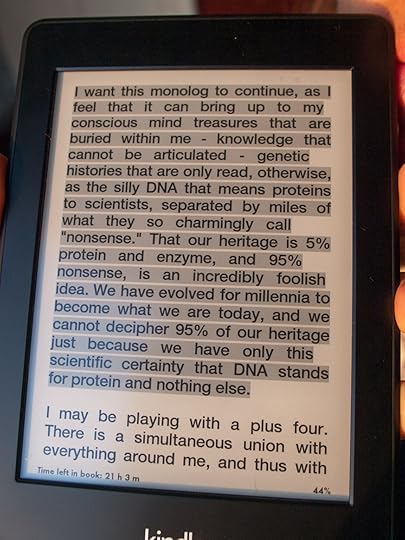What do you think?
Rate this book


978 pages, Paperback
First published October 1, 1990



PIHKAL: A Chemical Love Story (Shulgin)
- Your Highlight on page 208 | location 3183-3185 | Added on Wednesday, 11 June 2014 14:20:42
I looked up at him and smiled, showing all my teeth, "I learned long ago that the most dangerous opponent is the one who tells you he hasn't been near the game in years. He's the one who'll wipe the board with you, while apologizing for being so terribly rusty."
==========
PIHKAL: A Chemical Love Story (Shulgin)
- Your Highlight on page 215 | location 3294-3297 | Added on Wednesday, 11 June 2014 14:34:12
"You told me that you invent new psychedelics and that you have a group of people who try them out after you've made sure they're safe and ,/ He interrupted, "Not safe. There is no such thing as safety. Not with drugs and not with anything else. You can only presume relative safety. Too much of anything is unsafe. Too much food, too much drink, too much aspirin, too much anything you can name, is likely to be unsafe."
==========
PIHKAL: A Chemical Love Story (Shulgin)
- Your Highlight on page 219 | location 3349-3351 | Added on Wednesday, 11 June 2014 14:39:51
"Of course, there are many ways to alter your consciousness and your perceptions; there always have been, and new ways will keep being developed. Drugs are only one way, but I feel they're the way that brings about the changes most rapidly, and - in some ways - most dependably. Which makes them very valuable when the person using them knows what he's doing."
PIHKAL: A Chemical Love Story (Shulgin)
- Your Highlight on page 176 | location 2690-2698 | Added on Sunday, 8 June 2014 04:37:06
Sam said, "I don't know if you realize this, but there are some researchers - doctors - who are giving this kind of drug to volunteers, to see what the effects are, and they're doing it the proper scientific way, in clean white hospital rooms, away from trees and flowers and the wind, and they're surprised at how many of the experiments turn sour. They've never taken any sort of psychedelic themselves, needless to say. Their volunteers - they're called 'subjects,' of course - are given mescaline or LSD and they're all opened up to their surroundings, very sensitive to color and light and other people's emotions, and what are they given to react to? Metal bed-frames and plaster walls, and an occasional white coat carrying a clipboard. Sterility. Most of them say afterwards that they'll never do it again." "Jesus! Right now, after what I've just gone through, that sounds worse than awful." "Not all of the research is being done that way, thank God, but too much of it is." "What a shame," I said, saddened by the picture, "What a shame!"